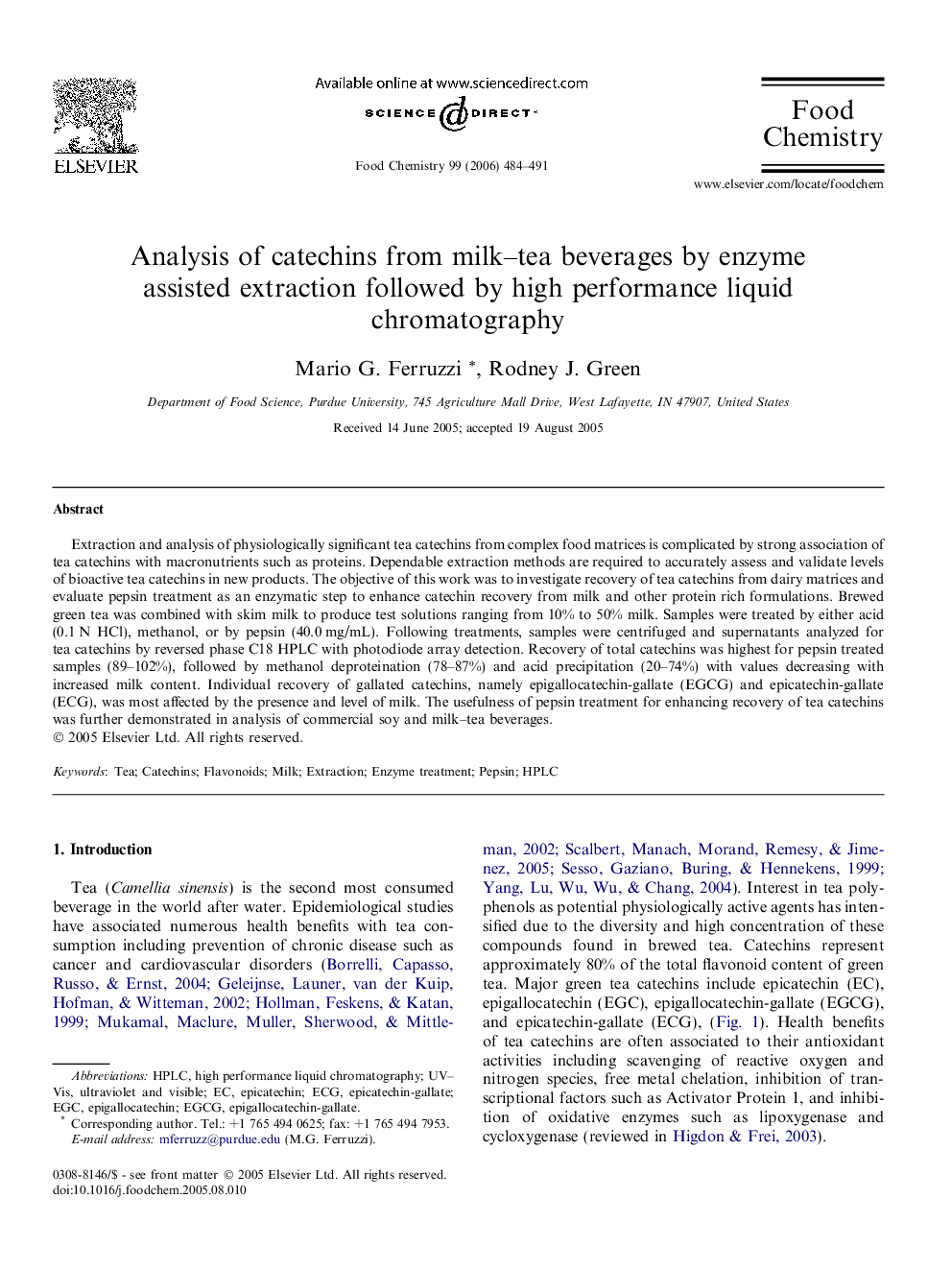| Article ID | Journal | Published Year | Pages | File Type |
|---|---|---|---|---|
| 1188678 | Food Chemistry | 2006 | 8 Pages |
Extraction and analysis of physiologically significant tea catechins from complex food matrices is complicated by strong association of tea catechins with macronutrients such as proteins. Dependable extraction methods are required to accurately assess and validate levels of bioactive tea catechins in new products. The objective of this work was to investigate recovery of tea catechins from dairy matrices and evaluate pepsin treatment as an enzymatic step to enhance catechin recovery from milk and other protein rich formulations. Brewed green tea was combined with skim milk to produce test solutions ranging from 10% to 50% milk. Samples were treated by either acid (0.1 N HCl), methanol, or by pepsin (40.0 mg/mL). Following treatments, samples were centrifuged and supernatants analyzed for tea catechins by reversed phase C18 HPLC with photodiode array detection. Recovery of total catechins was highest for pepsin treated samples (89–102%), followed by methanol deproteination (78–87%) and acid precipitation (20–74%) with values decreasing with increased milk content. Individual recovery of gallated catechins, namely epigallocatechin-gallate (EGCG) and epicatechin-gallate (ECG), was most affected by the presence and level of milk. The usefulness of pepsin treatment for enhancing recovery of tea catechins was further demonstrated in analysis of commercial soy and milk–tea beverages.
